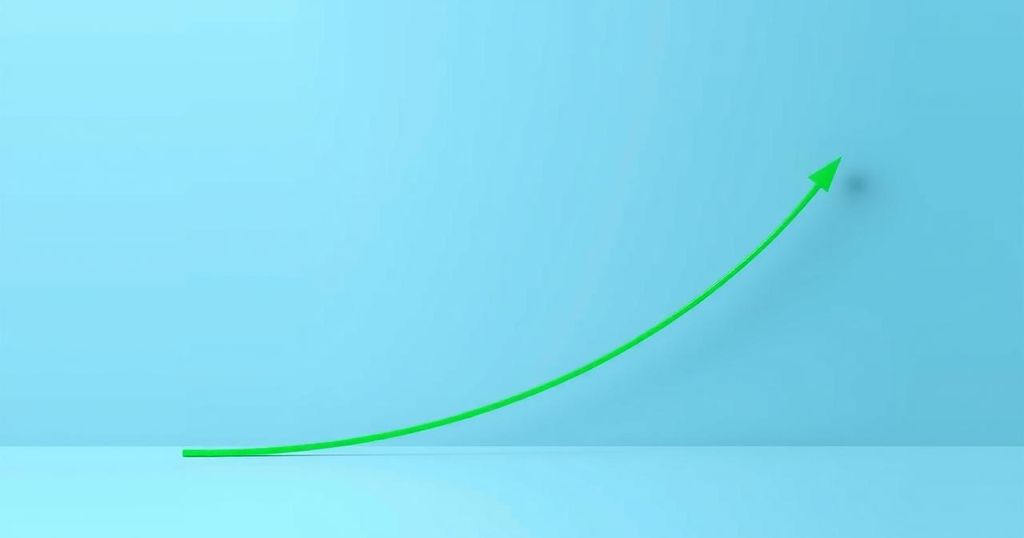This week, the Qatar Stock Exchange (QSE) experienced a positive trajectory, with the key index gaining 68 points and market capitalisation increasing by QR2.63 billion. The QSE implemented changes to its trading commission structure, while the Al-Nukhba programme was introduced to support local enterprises. Despite lower trading volumes and mixed investor sentiments, particular sectors such as transport and telecom displayed substantial growth.
Despite ongoing concerns surrounding US tariffs, the Qatar Stock Exchange (QSE) experienced a positive movement this week. The key index increased by 68 points, resulting in a capitalisation rise of QR2.63 billion. The 20-stock Qatar Index noted a 0.66% increase as domestic institutions remained net buyers, albeit with reduced activity. Additionally, the QSE revised its trading commission model by replacing the minimum commission of QR30 with a fixed proportional rate of 0.00275, eliminating the previous minimum threshold.
There was increased demand in several sectors this week, particularly in transport, telecom, real estate, and consumer goods. Notably, QSE launched the Al-Nukhba programme, aimed at enhancing the capabilities of family-owned and private companies in Qatar. Meanwhile, foreign funds showed diminished net profit booking, as total assets held by commercial banks increased by 3.3% year-on-year, reaching QR2.04 trillion in January 2025.
In contrast, Gulf institutions shifted towards net selling in the market, trading a modest amount of AlRayan Bank-sponsored exchange-traded fund QATR worth QR0.12 million. Arab individuals exhibited bearish tendencies, participating in limited trading of the Doha Bank-sponsored exchange-traded fund QETF worth QR0.08 million. Additionally, foreign retail investors also turned net sellers, exchanging 1,000 sovereign bonds valued at QR10 million in a single transaction.
The Islamic index surpassed other indices this week, highlighting Doha Bank’s successful $500 million global bond issue, which was heavily oversubscribed. Market capitalisation experienced a slight increase of 0.43%, reaching QR616.07 billion, supported by small and microcap segments, including a strategic partnership between Doha Insurance and Bupa Global.
Trade turnover and volumes witnessed declines, recording no trading in treasury bills. The Total Return Index rose by 0.75%, while the All Islamic Index and All Share Index increased by 0.79% and 0.63% respectively, with industrials and banking sectors dominating over 54% of total trade volumes. Sector performance revealed notable gains in transportation (3.07%), telecom (1.78%), and real estate (1.73%).
Approximately 57% of traded stocks yielded gains this week with significant contributors including Qatar General Insurance, Nakilat, and Vodafone Qatar. Conversely, stock depreciation was reported amongst Gulf International Services and Baladna. In the venture market, Techno Q faced declines in share value.
Net selling by foreign institutions decreased significantly to QR136.98 million from QR463.31 million in the previous week. Conversely, Gulf institutions increased their net profit bookings to QR23.77 million, contrasting the prior week’s QR11.96 million. Meanwhile, foreign individuals recorded net profit takings of QR12.52 million, while Arab retail investors turned net sellers at QR9.18 million, down from previous weeks.
Qatari individuals experienced net profit takings of QR4.8 million, contrasting previous net buying behaviors, while Gulf retail investors reflected a pattern towards net selling amounting to QR4.64 million. The total depth of domestic institutions’ net buying diminished substantially to QR191.89 million from QR392.64 million in the prior week. Moreover, trade volumes plummeted by 46% to 510.42 million shares with a 43% drop in value to QR1.54 billion, alongside a 26% decrease in transactions to 63,524 activities for the week.
In summary, the Qatar Stock Exchange demonstrated resilience with a modest index gain of 68 points, aided by domestic institutions despite certain market contractions. Key sectors such as transport and telecom saw heightened interest, alongside new initiatives like the Al-Nukhba programme fostering growth among local businesses. However, varying trading patterns among institutional investors, decreases in trade volumes, and net selling by foreign and Gulf retail investors indicate a cautious market atmosphere moving forward.
Original Source: www.gulf-times.com




